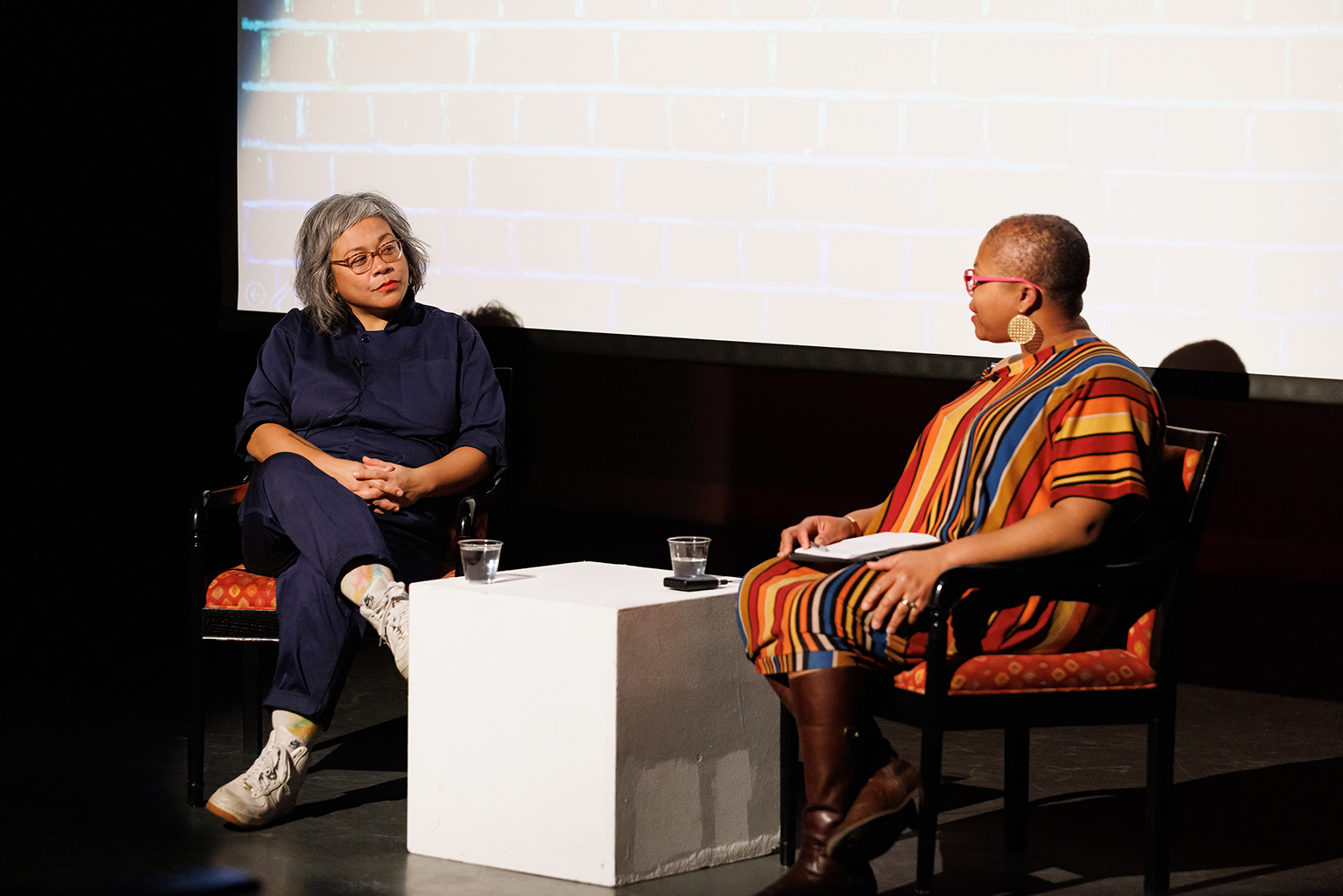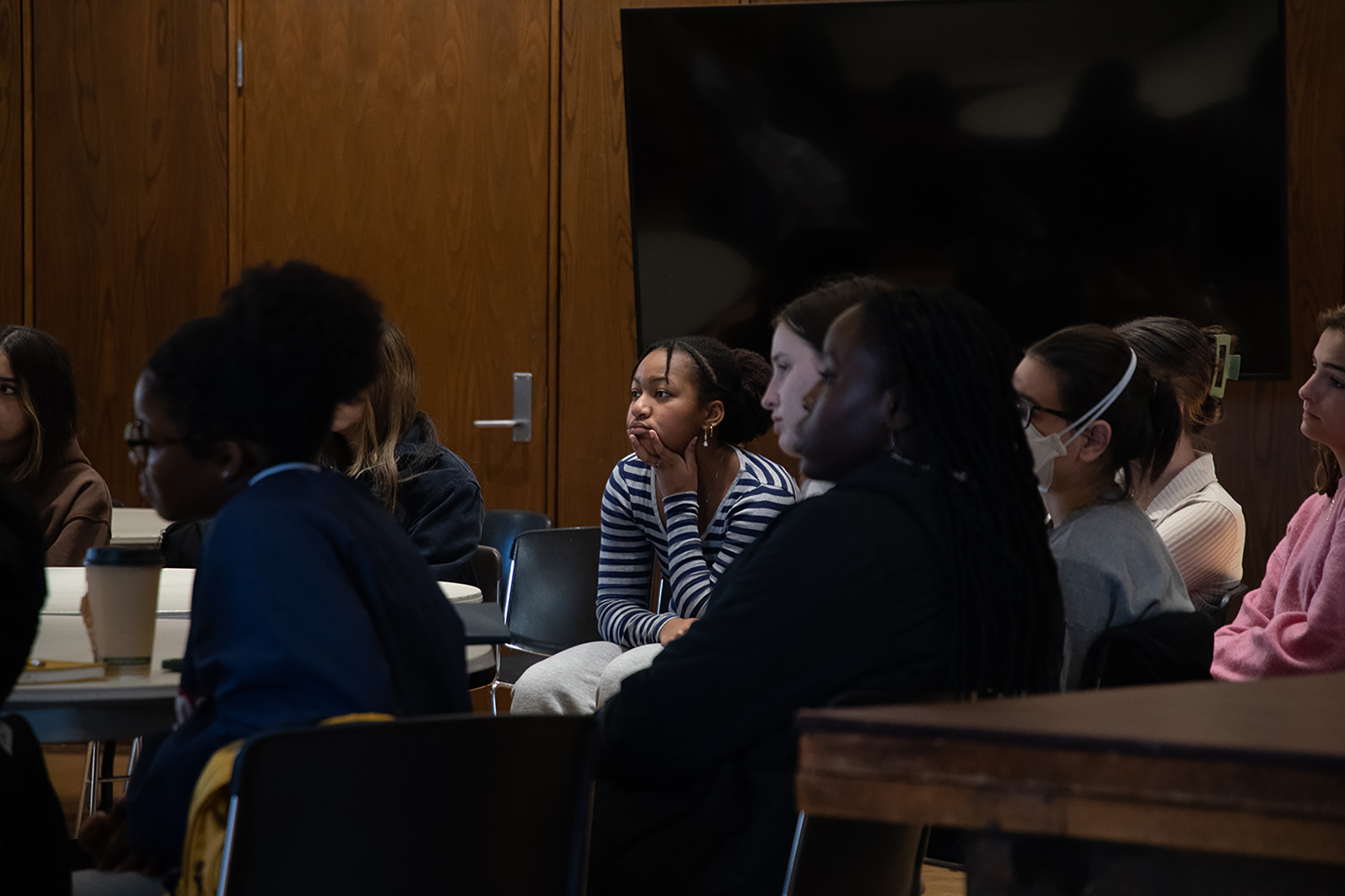Revaluing Care: The Ethics of Now with Angela Garbes

It’s the work that makes all other work possible – yet it’s not often included in discussions of labor and economics.
That work, according to author Angela Garbes, is mothering.
Garbes joined host Adriane Lentz-Smith for a public conversation at the Durham Arts Council on Friday, January 27, 2023, as part of the Kenan Institute for Ethics’ event series “The Ethics of Now.” Garbes spoke about her book “Essential Care: Mothering as Social Change” and signed copies for audience members following the event.

Garbes said that she doesn’t use the term “mothering” in a gender-specific or essentialist way, but to describe anyone who is called to nurture life.
Care work of all kinds is necessary to sustain society – whether childcare, elder care, healthcare, disability care, and other forms of care. Yet, Garbes points out, it is systemically undervalued and underpaid. It is also tied to histories of racism, enslavement, and colonialism, having historically been performed – for free or for very low wages – by women of color. Garbes also connects the topic to her own family history: during a national shortage of healthcare workers that led to a temporary lifting of immigration restrictions, her parents emigrated from the Philippines to the United States.
Children are viewed as inherently worthy of care, but Garbes noted that as we age, “that deservingness goes away,” and we are expected to labor in order to prove that we deserve care and necessities such as housing.
“I think we are all entitled to those things because we’re here,” she said.
Earlier in the day, a group of Duke undergraduate students joined Garbes to discuss the importance of care work and how we can advocate for society to value it more than it currently does.

They asked: How do we maintain hope? How do we make sure Black women and other women of color aren’t forgotten? What role should men play?
Garbes flipped the question back to the male students in the room: “What can you do, personally and systemically?”
Sam Seelig P’24 shared his frustration with the limiting expectations society imposes on men regarding care. “We should be upset about not getting paid leave, too.”
The conversation ended with a student describing the kinds of collective care practices she sees in her and her friends’ communities of color. She then asked how we can change the social narrative around care.
“Share care stories,” Garbes responded. “Like you just did, just now.”
Exchanging care stories, she said, can transform care from an individual burden into what it should be: a communal practice.

Jac Arnade-Colwill contributed reporting for this article.
